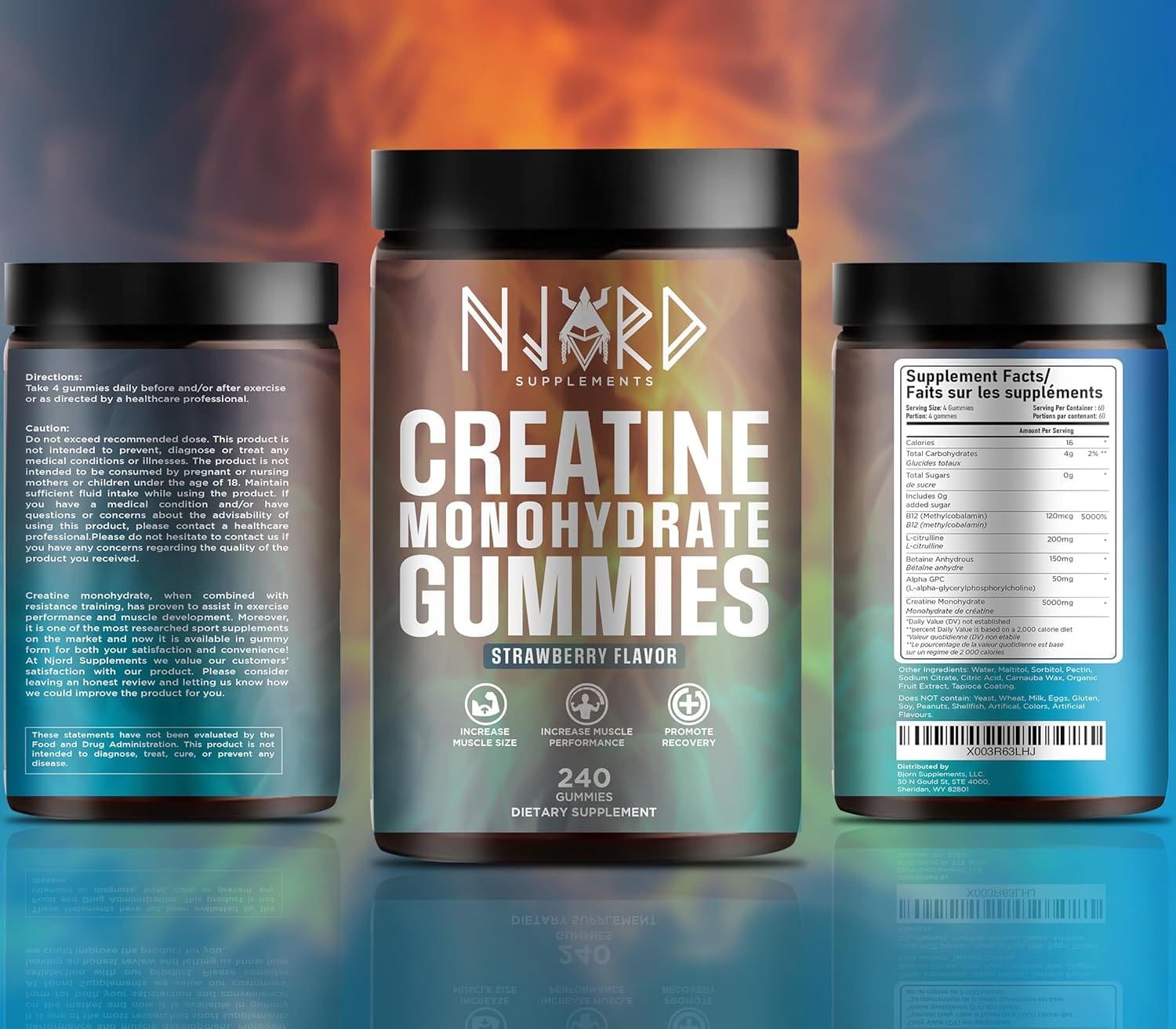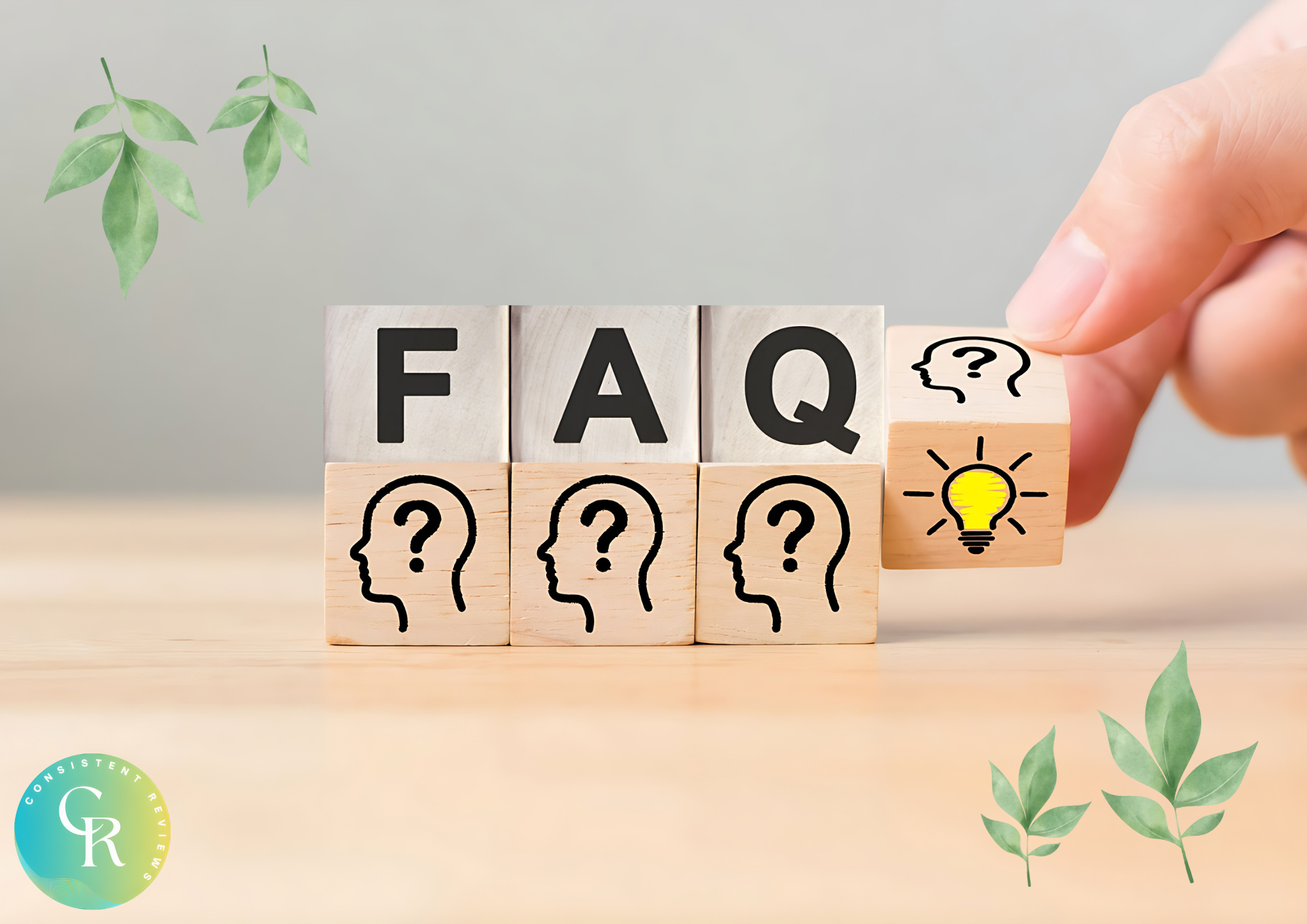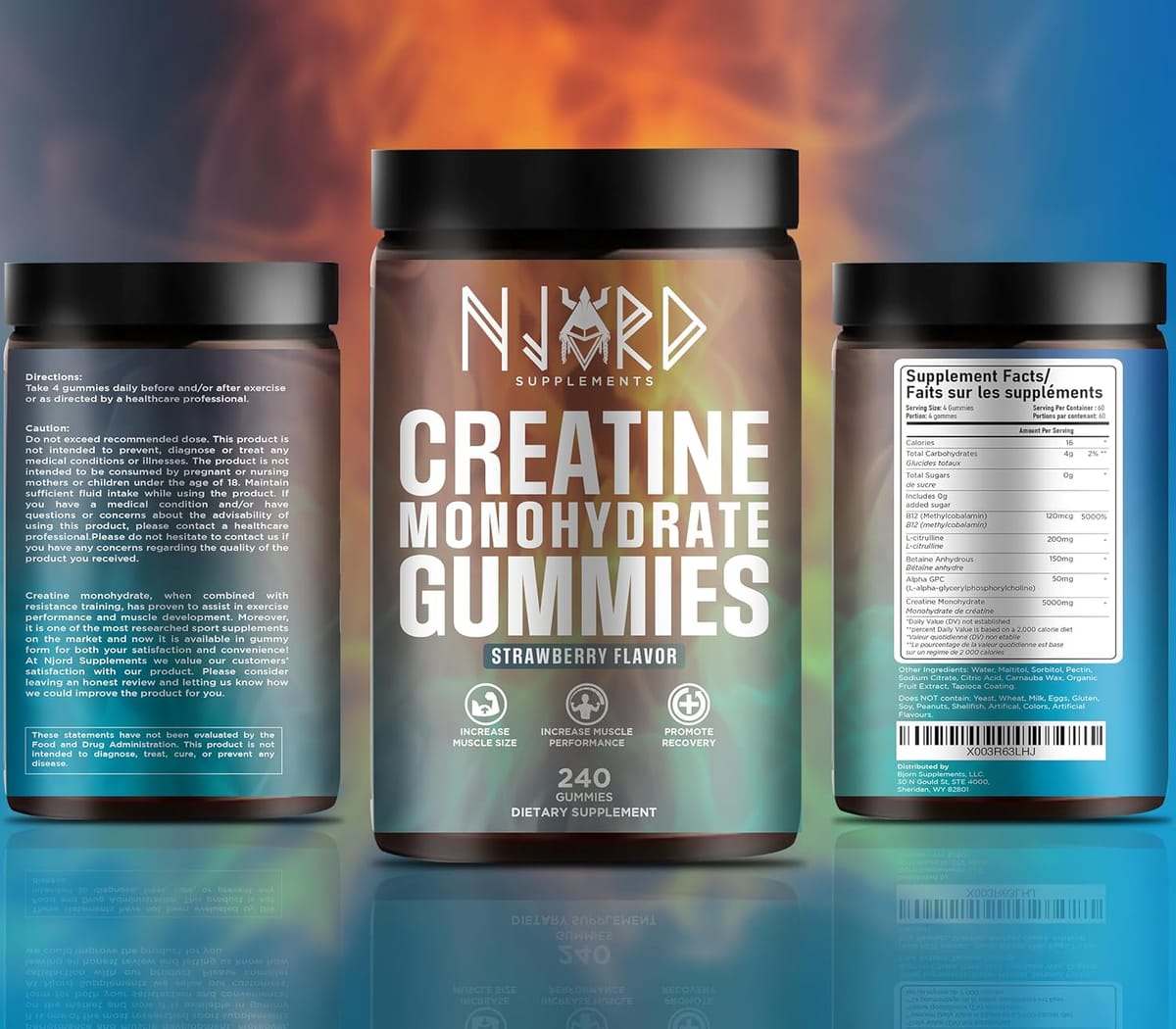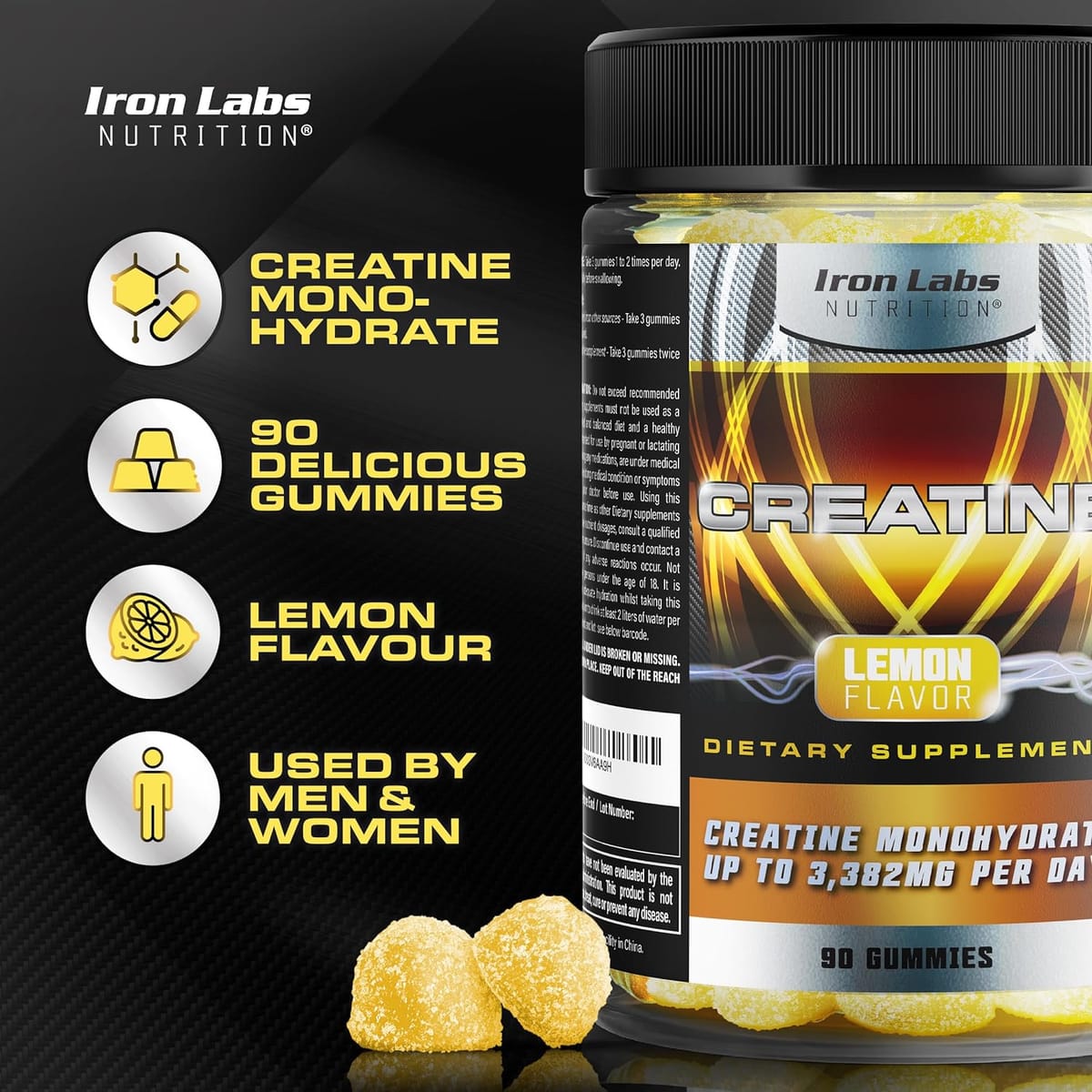Key Takeaways:
- Creatine gummies can cause side effects such as muscle cramps, rapid weight gain, and potential kidney issues.
- Understanding the correct dosage and potential risks is crucial for safe consumption.
- Creatine supplementation can enhance athletic performance but should be approached with caution.
Introduction to Creatine Gummies
Creatine gummies have become a popular alternative to traditional creatine powder and capsules. These gummies offer a convenient and tasty way to consume creatine, a naturally occurring substance in the body that helps produce energy during high-intensity exercise. However, like any dietary supplement, creatine gummies come with their own set of side effects and considerations.
What is Creatine?

Creatine is a compound formed from amino acids and creatine phosphate is stored in muscle cells. It plays a crucial role in producing adenosine triphosphate (ATP), the primary energy carrier in cells. Creatine monohydrate is the most common form used in supplements, including gummies, to enhance exercise performance and increase muscle mass.
Common Side Effects of Creatine Gummies
Muscle Cramps
One of the most frequently reported side effects of creatine gummies is muscle cramps. These cramps can occur due to the increased water retention in muscle cells, which can lead to dehydration if not managed properly. Staying hydrated is essential when taking creatine supplements to minimize this risk.
Rapid Weight Gain
Creatine supplementation often leads to rapid weight gain, primarily due to water retention in the muscles. While this can be beneficial for those looking to increase muscle mass, it may be concerning for others. Monitoring body weight and adjusting daily creatine supplement intake accordingly can help manage this side effect.
Potential Kidney Issues
Affect Kidney Function
There have been concerns about the creatine supplement's impact on kidney function, especially with long-term use or high doses. While most studies indicate that creatine is safe for healthy individuals, those with pre-existing kidney conditions should consult a healthcare provider before starting creatine supplementation.
Kidney Damage
High doses of creatine over extended periods can potentially lead to kidney damage. It's crucial to follow recommended dosages and avoid excessive intake to mitigate this risk. Regular kidney function tests can also help monitor any adverse effects.
Digestive Issues
Stomach Discomfort
Some users report stomach discomfort, including bloating and diarrhea, when taking creatine gummies. These symptoms are often dose-dependent and can be minimized by starting with a lower dose and gradually increasing it.
Nausea
Nausea is another common side effect, particularly when creatine is taken on an empty stomach. Consuming creatine gummies with food can help alleviate this issue.
Muscle Pain and Weakness
Muscle Pain
While creatine is known for enhancing muscle strength, some users experience muscle pain, especially during the initial phase of supplementation. This pain is usually temporary and can be managed with proper hydration and stretching exercises.
Muscle Weakness
In rare cases, creatine supplementation can lead to muscle weakness. This is often due to improper dosing or underlying health conditions. Consulting a healthcare provider can help determine the appropriate dosage and identify any potential issues.
Cardiovascular Concerns
Exercise-Induced Cardiovascular Function
Creatine supplementation can affect exercise-induced cardiovascular function. While it generally enhances performance, some individuals may experience increased heart rate and blood pressure. Monitoring these parameters during exercise can help manage any adverse effects.
Heart Failure
There is limited evidence suggesting that creatine supplementation could exacerbate heart failure in susceptible individuals. Those with existing heart conditions should seek medical advice before starting creatine gummies.
Liver Health
Liver Disease
Although rare, there have been reports of liver disease associated with high doses of creatine. It is crucial to follow the recommended dosages and seek advice from a healthcare provider if you have any liver conditions.
Liver Function Tests
Regular liver-impaired kidney function tests can help monitor any potential adverse effects of creatine supplementation. This is particularly important for long-term users or those taking high doses.
Psychological Effects
Bipolar Disorder
There is some evidence to suggest that creatine supplementation may exacerbate symptoms of bipolar disorder. Individuals with this condition should consult a healthcare provider before starting creatine gummies.
Anxiety and Mood Swings
Some creatine users report experiencing anxiety and mood swings while taking creatine. These symptoms are generally mild and can be managed by adjusting the dosage or discontinuing use.
Impact on Athletic Performance
Enhance Athletic Performance
Creatine supplementation is widely recognized for its ability to enhance athletic performance. It increases muscle strength, endurance, and overall exercise capacity, making it a popular choice among athletes.
Improve Athletic Performance
Studies have shown that creatine supplementation improves performance in high-intensity, short-duration activities like weight lifting and sprinting. This makes it a valuable addition to any athlete's regimen.
Muscle Growth and Strength
Increase Muscle Mass
Creatine is highly effective in increasing muscle mass. It promotes water retention in muscle cells, leading to a fuller, more muscular appearance. This is particularly beneficial for bodybuilders and those looking to increase lean muscle mass.
Muscle Strength
In addition to muscle growth, creatine also enhances muscle strength. This allows for more intense and prolonged workouts, contributing to better overall fitness and performance.
Dosage and Administration
How Much Creatine
Determining the correct dosage of creatine is crucial for minimizing side effects. The typical loading dose is 20 grams per day for the first week, followed by a maintenance dose of 3-5 grams per day. It's essential to follow these guidelines to avoid adverse effects.
Maintenance Dose
After the initial loading phase, a maintenance dose of 3-5 grams per day is recommended. This helps sustain elevated muscle creatine levels without causing excessive water retention or other side effects.
Special Populations
Kidney Disease
Individuals with kidney disease should exercise caution when taking creatine supplements. Consulting a healthcare provider is essential to determine the appropriate dosage and monitor kidney function.
Muscular Dystrophy
Creatine supplementation has shown promise in treating muscle disorders like muscular dystrophy. However, it's crucial to consult a healthcare provider to determine the appropriate dosage and monitor any potential side effects.
Combining Supplements
Whey Protein Supplementation
Combining creatine with whey protein supplementation can enhance muscle growth and recovery. This combination of dietary supplements is popular among athletes and bodybuilders for its synergistic effects.
Conjugated Linoleic Acid Combined
Some users combine creatine with conjugated linoleic acid (CLA) to further enhance muscle growth and fat loss. While this combination can be effective, it's essential to monitor for any potential side effects.
Long-Term Use
Long-Term Creatine Supplementation
Long-term creatine supplementation is generally considered safe for healthy individuals. However, regular monitoring of kidney and liver function is advisable to ensure no adverse effects.
Short-Term Creatine Supplementation
Short-term creatine supplementation can provide immediate benefits in terms of muscle strength and performance resistance training only. This is particularly useful for athletes preparing for competitions or intense training sessions.
Safety and Efficacy
Randomized Clinical Trials
Numerous randomized clinical trials have demonstrated the safety and efficacy of creatine supplementation. These studies provide valuable insights into the benefits and potential risks associated with creatine use.
Positive Health Benefits
Creatine supplementation offers several positive health benefits, including increased muscle mass, enhanced athletic and physical performance, and improved exercise capacity. However, it's essential to be aware of and manage the potential side effects appropriately.


Are creatine gummies safe for long-term use?
Long-term use of creatine gummies is generally considered safe for healthy individuals. However, regular monitoring of kidney and liver function is recommended to ensure no adverse effects.
Can creatine gummies cause kidney damage?
Can creatine gummies cause kidney damage?
High doses of creatine over extended periods can potentially lead to kidney damage. It's crucial to follow recommended dosages and consult a healthcare provider if you have any pre-existing kidney conditions.
How much creatine should I take daily?
The typical maintenance dose of creatine is 3-5 grams per day. Following these guidelines is essential to avoid adverse effects and maximize the benefits of creatine supplementation.

Creatine gummies are a popular supplement for enhancing muscle growth and athletic performance. While they offer several benefits, including increased muscle mass and strength, they also come with potential side effects such as muscle cramps, rapid weight gain, and kidney issues. Understanding the correct dosage and monitoring for any adverse effects is crucial for safe consumption. Consulting a healthcare provider is advisable, especially for individuals with pre-existing health conditions.










